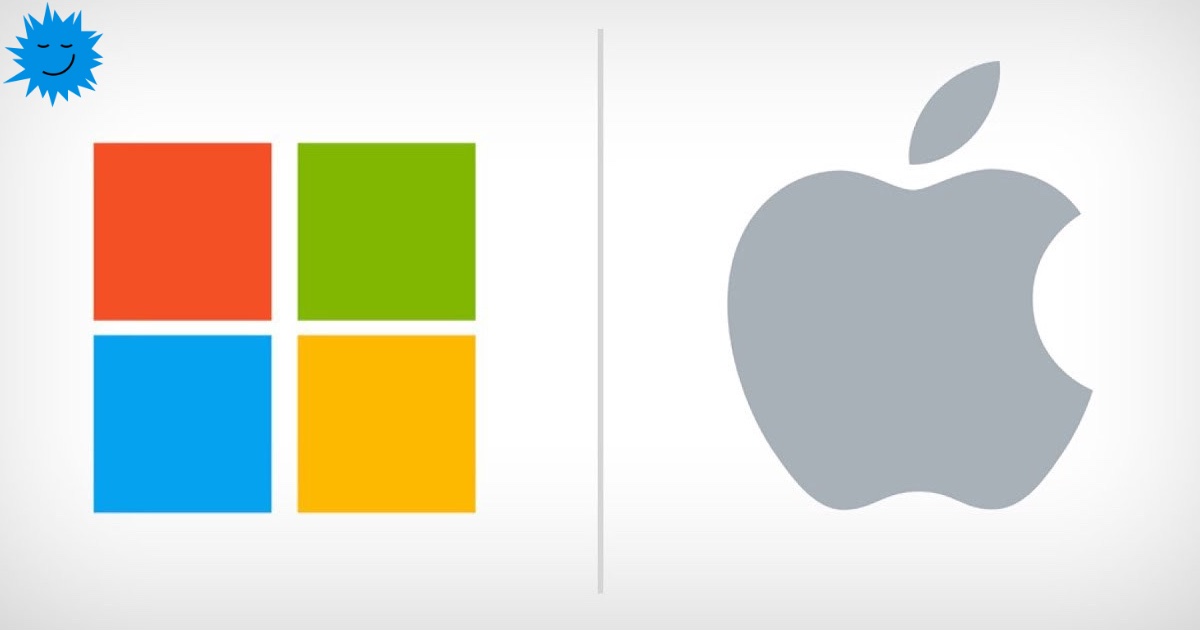
Apple fans continue to speculate about what could be the company's next breakthrough product. Something comparable to the first Mac, the first iPod, the first iPhone - a revolutionary product that will change the industry and give Apple a powerful push forward. After all, this is how Apple has always played this game. This is how we are used to seeing Apple's success.
But I think that further this game will continue differently. Something completely different will happen. But to understand what the Apple of the future will be like, we need to understand the Apple of the past and why that past won't affect the future.
What did Steve Jobs do?
Apple has always been credited with creating a new trend-setting product that will transform an entire industry. The company may have done this in the past because it had a visionary leader like Steve Jobs.
People often don't understand who Jobs was. As a software developer, I often interacted with people who had an extremely technical approach to everything. Many tech geeks never understood Steve Jobs. To them, he was just an aggressive dude doing marketing. Most of them considered Steve Wozniak to be the real wizard. An unsung hero, thanks to whom all the magic of Steve Jobs was initially created, but only Jobs got the laurels. And it's not hard to see why they think so. They are techies, so they identify with Wozniak. If you are a developer or an engineer, then you think that it is you who solve all real problems, and managers ... but what are they doing?
But Steve Jobs was not your average manager or leader. I hate statements like "he was a visionary!" There is so little specificity in such statements that it is difficult to understand who the visionary is.
Let's contrast Wozniak to Jobs to understand what this means. Wozniak loved to solve technical problems, and was a real magician in this. Even today, people are surprised at how many functions it managed to fit into several chips thanks to its very thoughtful structure. It was like a puzzle to him. For entertainment, Woz would dream up complex computer architectures on his bedroom floor in the evenings. He set himself the task of making architectures more thoughtful and cunning. It looks like he could do all this even in his mind.
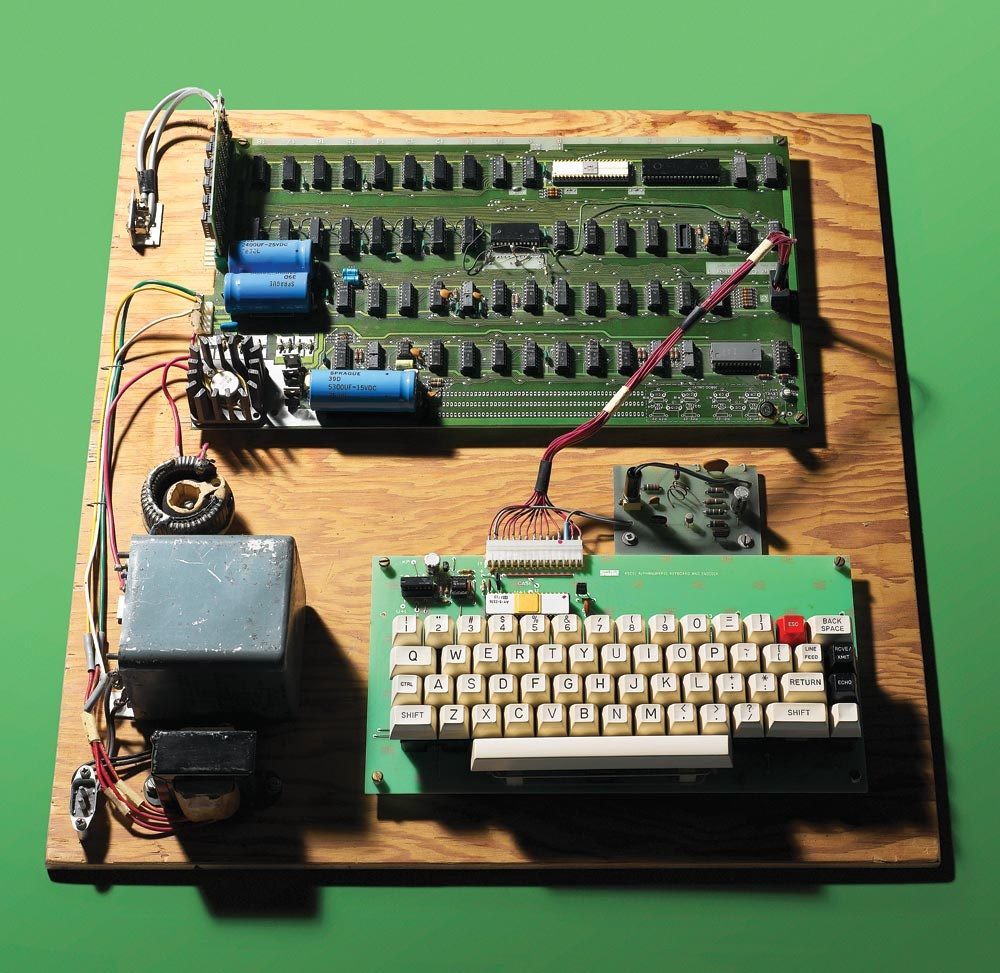
Thanks to Woz's electronic genius, the thoughtful architecture of the Apple I used the smallest possible number of chips to keep costs down. In the Apple I era, home computers were sold as build kits rather than professional looking cases.
Steve Jobs has never possessed Woz's technical intelligence. But he had something completely different. Woz was a geek capable of thinking in this vein: "Look how few kilobytes this machine has, and how cleverly I reprogrammed the interrupt vector tables!" Woz was a charming guy with a boyish love of technology that is close to me. I know that when I come up with some cool technology and show it to my wife, she asks: "Great, but what is it for?"
However, Woz never thought outside the box of geek thinking. He thought about what worried himself and his fellow geeks. In contrast, Steve Jobs looked at everything from a completely different angle. Jobs has always thought about the global implications of technology. About what technology is capable of in the hands of ordinary users. He thought in terms of business and products, while Woz mainly thought in terms of electrical circuits and assembly code.

Steve Jobs and Wozniak.
While Woz was creating new circuits, it was often Jobs who introduced him to new technologies and devices. Jobs was always looking for something new. When creating the Apple II, Jobs insisted that the computer should be completely silent. He wanted people to be able to sit in silence and concentrate on their computers. All computers at the time had a noisy power supply. The engineers did not care, because everyone took it for granted. Woz never thought about it. But Steve managed to find a freaky guy who was able to design a power supply that made almost no noise, and this development almost ruined Apple in the very beginning.
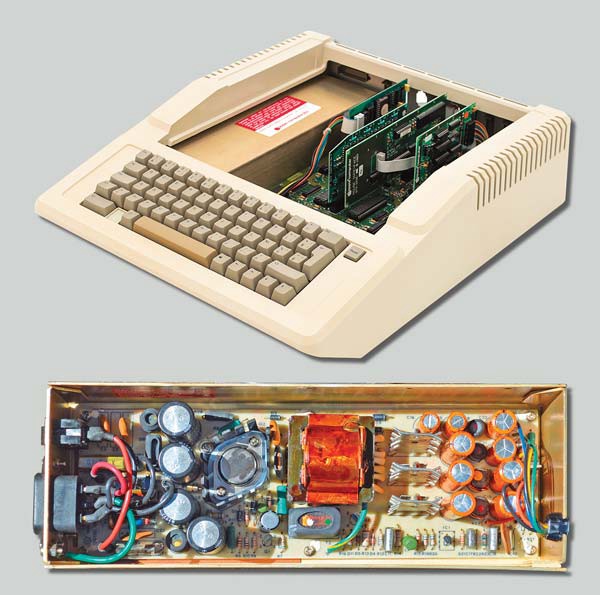
The 38-watt Apple II PSU was designed by Rob Holt. Steve Jobs wanted Holt to design a smaller, quieter PSU, but he didn't have the money to do that.
This is how Steve and Woz often worked. Jobs was always on the lookout for new technologies and components that could be used. He showed all this to Woz, who had enough technical experience to make them work or decide if they were useful.
Jobs insisted that the Apple II have a beautiful and professional-looking body. At the time, home computers were sold as building kits, much like today's Arduinos. They did not have their own buildings. These were electronic gadgets for geeks. Jobs wanted to create something that the average person could bring home and put on the table. A ready-made, assembled professional looking home computer.
And this is typical of everything that Steve Jobs did. He was always looking for something new. And unlike most people, he knew when he found the right thing. Xerox PARC developed many revolutionary ideas, such as the first practical GUIs, object-oriented programming, networks and many other things, so Steve Jobs decided to visit the company.
Smart Engineers and Competent Leaders Are Not Enough
One thing most people don't understand is that they believe that the main thing is the technical geniuses working in their laboratories to create great products. But in fact, great engineers are constantly creating great products. In fact, there is no shortage of smart ideas.
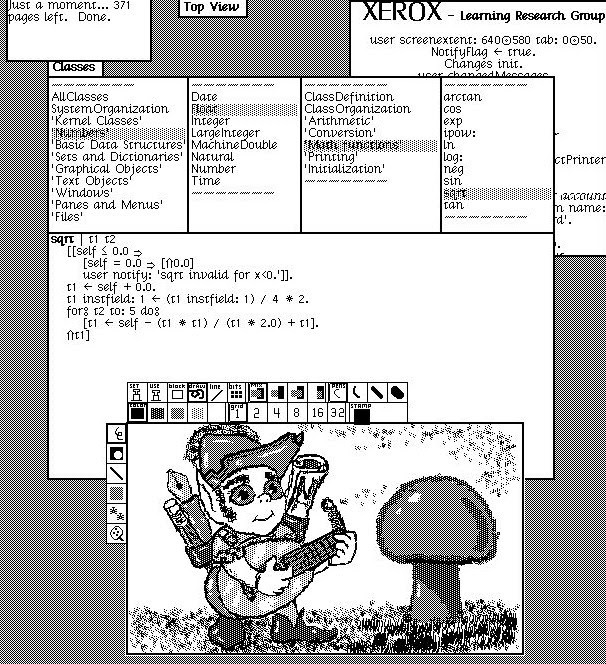
Xerox PARC has developed modern GUIs as well as agile application development using modern Integrated Development Environments (IDEs) based on Smalltalk. However, Xerox management failed to see their potential.
The big problem is the huge imbalance between engineers and designers who create great products and managers who need to understand their potential. Xerox has fought one potential revolution after another in its laboratories, but management has failed to recognize their potential. What Xerox management failed to understand, despite the years spent in research laboratories, Steve Jobs realized in a few minutes of his visit.
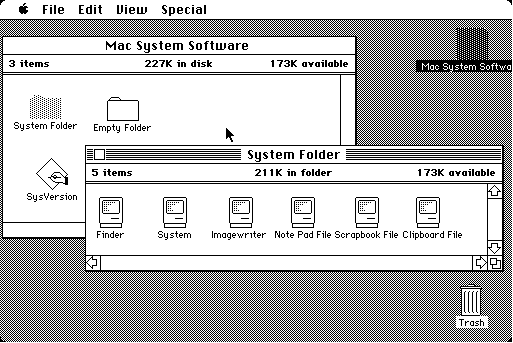
System 1 on the first Mac. The first commercial operating system with a GUI.
Based on what he saw during his hour-long visit to Xerox PARC, Jobs essentially created two companies. The Mac was created by seeing the first GUIs. NeXT, which he later founded, did rapid development using object-oriented programming, also first seen at Xerox PARC.
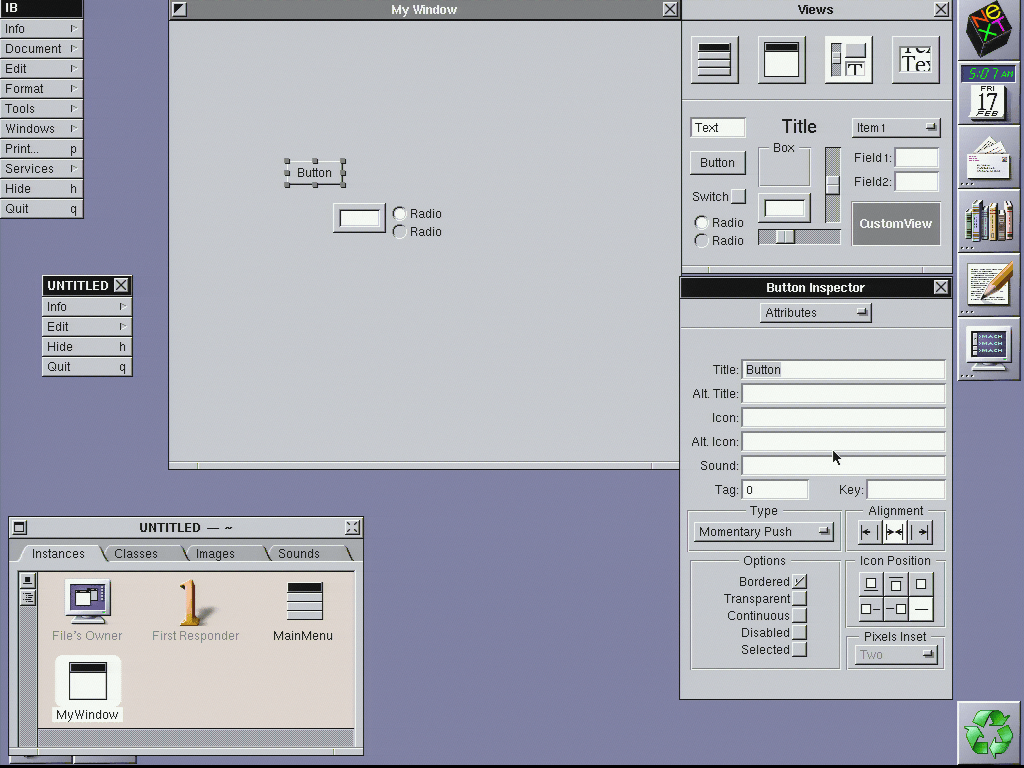
The NeXTSTEP operating system, developed at NeXT under the leadership of Steve Jobs, has revolutionized software development by allowing you to quickly create GUI applications by dragging and dropping reusable objects.
The same principle was used when Steve Jobs returned to Apple after his exile. The company was failing at the time, but it still had brilliant engineers and designers like Jonathan Ive, who designed a line of successful Macs. In particular, he created the multi-colored iMacs that saved and revived Apple.

"Sorry, no beige." The colorful iMacs that saved Apple were not invented by Steve Jobs, but it was Jobs who realized their potential and appeal. At the time, every computer was beige.
The irony is that these multicolored iMacs were not originally created at the behest of Steve Jobs. Ive has already designed them. Apple's problem was the same as that of Xerox: management could not see the potential or the brilliance of products created by its own employees. All that management saw was the colorful materials and intricate shapes that add value to computers. From their petty point of view, they were throwing away money that could be spent on more memory or a larger hard drive.
In contrast, Steve Jobs immediately saw the potential of the computer, just as it happened at Xerox. These poppies weren't just pretty things. Like all Apple products, they have become a combination of beautiful aesthetics and practicality. Let's take a look at something as simple as the Apple Power Adapter. It is designed to fit next to other adapters because it is thin and not wide. It has parts to wrap the cable around. The iMac had much the same practical approach, such as having a handle for easy portability. It is because of this attention to detail that people love their Macs. Steve Jobs had the ability to connect emotionally with users. He could see what fascinated and attracted them, even if they themselves did not yet know it.
Jobs forced workers to give their best
It is worth clarifying that this is not the only role that Jobs played. He knew how to make his employees work better. Yes, he was a bastard. I have read a lot about Jobs and from what I read it can be said that it is difficult to relate to him with sympathy. But not everything was so black and white. Someone hated Steve Jobs, but others loved him, despite all the flaws. Many said that under his leadership they created their best work. Much of this was due to the fact that Steve Jobs has always questioned what people created and made suggestions. People mistakenly thought Steve Jobs was just another salesperson, marketing genius, or executive. But that was not the case.
Jobs, unlike most CEOs, spent most of his time in the product development lab, where he worked on ideas. He may not have sat in a CAD / CAM program and did not draw the lines of the new Mac or iPhone himself, but he followed every stage of the work, gave his feedback and made suggestions. He was worried about every smallest detail. If you look at the names of the owners of the patents for the Apple power supply, then you will find the name of Steve Jobs. How many CEOs of PC companies spent weeks getting involved in the design of a power supply?
While I can't match the talent level of those who have done great work at Apple, I have worked with bosses who reminded me of Steve Jobs and gave me an idea of what he could be. Years ago, I had a boss whom I almost hated. He has always been extremely demanding and has always been micromanaging. He could be ripped off the reels if something went wrong as he intended. In many ways, he seemed like the worst leader ever.
However, today I must admit that I really liked this person, despite all his flaws and outbursts of emotion. Why? Because even though he could be a creep, he became incredibly inspired and grateful when we were able to do something good. When this happened, we really felt like we had made a breakthrough. This justified the inconvenience of working with him. Conversely, I have dealt with managers who never lost their composure, but working with them was completely exhausting. Why? Because they could never say anything positive. Because they paid attention only to the negative and they completely lacked the ability to admire something. This is what I realized about Steve. He was someone who can truly inspire a technical solution, and I'm sure the people who came up with this solution,felt at the same time on top of the world. It's not enough to just tell employees that they are doing well. It should be sincere. Nothing is more annoying than a boss who says "great job" no matter what you do, even if you know you did the nonsense. It seems superficial and manipulative.
Okay, but how does this relate to Microsoft?
I understand that my story has deviated too much from the topic and turned into a detailed description of the character of Steve Jobs. After all, the story is about why Apple could become another Microsoft. What exactly do I mean by this?
In the 90s, Microsoft was much more successful than Apple, despite its lack of Steve Jobs' skills at predicting the future and creating amazing devices. If Apple was Alexander the Great, Microsoft reminds me more of the Romans.
Alexander the Great was a military genius who in a short time created a vast empire that soon collapsed. The Romans, on the other hand, lost many battles. Their progress was not associated with geniuses-generals, but with the ability to regroup after defeat, learn from their failures, gather will in a fist and try again. Throughout its history, Microsoft has demonstrated a similar determination.

Microsoft Windows 1.0. Not very popular and not very successful.
Many Microsoft products, including Windows, had deep flaws and turned out to be quite bad when first released. Everyone has heard of the first Mac, but almost no one knows about Windows 1.0. The next version of Windows was not much better, but Microsoft continued to work until the release of Windows 3.11, which finally gave the company real success.
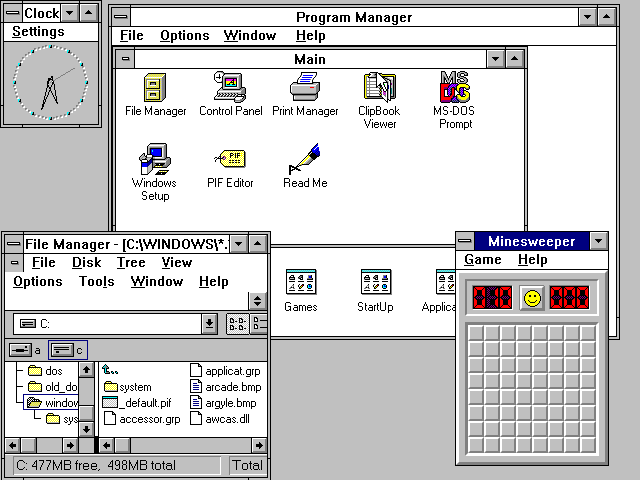
Microsoft Windows 3.11, which was a great success for Microsoft. This is the first Windows I have worked with. Before that, most of us worked with MS DOS and the command line.
This tenacious determination was combined in the company with a ruthless business streak and strategic thinking. She knew how to corner the market, fight competitors, serve users, and more. This is reminiscent of the Romans' ability to build a strong empire. Although they lost many battles, they knew how to win and strengthen what they had won. Alexander the Great left no such legacy. He did not create a lasting empire. He didn't understand how to build an empire.
At Apple, Alexander was replaced by a Roman
If Steve Jobs was Alexander the Great, then Tim Cook is probably the new Roman leader of Apple. While the Romans lacked the military genius of Alexander, as Tim Cook lacks the product and design genius of Steve Jobs, he, like the Romans, understands how to build an empire. He understands how to build effective sustainable organizations.
We may never see the spark of visionary vision that marked Steve Jobs's leadership years again in the future, but we can see the same strategic thinking and meticulous planning that created Microsoft. Apple creates strategic advantage through its supply chain and market muscle. The company is using its scale to create silicon chips that its competitors cannot afford. Tim Cook is ruthlessly exploiting Apple's scale and vertical integration.
What Apple's future success will look like
Therefore, we will not wait for a new major breakthrough from Apple. Instead, there will be strategic implementation and improvement. The future will be related to the gradual strategic securing of primacy through Apple processors. With longer battery life and better performance per dollar spent than the competition, the company is able to sell superior products in the premium segment, which is where the main profit lies.
Apple has a small share of the total computer market, but already generates about 60% of all revenues. And it looks like the company is quite ready to take an even larger share of the market revenue. With cheaper, high-performance, low-power chips, the company may be able to squeeze even more competitors out of the premium segment, thus forcing PC makers to fight to the death in a low-margin, high-volume market.
Do we want this future?
I admit, I would rather have awesome new products in the future. However, desires and reality are two different things. Tim Cook is not going to revolutionize Apple. Instead, he is going stone by stone, one strategic decision after another, to build an empire.
But is it really that bad? Tim Cook may not be as bright as Steve Jobs, but he is softer. We need this too. Apple's future has its advantages. In many ways, they coincide with the benefits that Microsoft provides to its users: worldwide recognition and support.
Young people don't know what it was like for an Apple user twenty years ago. It meant being an outcast. Unable to connect to networks. The browser could not display all pages. You have always felt like a second-class citizen in the world of computers, who is not noticed or taken seriously. Mac owners today are first class citizens. They are found in all corporations. Twenty years ago it was difficult to imagine such a thing. Now I don't envy the assortment of programs in Windows. On the contrary! I feel like I have such a rich selection of software on my Mac today that I would feel lost on Windows.
This is what Microsoft gave Windows users in the 90s. The world revolved around them and served them. This is what Tim Cook's Apple will give us: Apple that has weight. Now the choice of Mac is not some strange, but quite normal decision. If you start a company, then there is a high probability that you will need to think about the choice: Mac or PC.
This means that when a cool new game is released, it may be compatible with the Mac as well. I don’t know about you, but I will gladly accept this boring future of the Mac, in which I will have all the advantages that were previously inherent in Windows and PC. How about this: can a user get the same specs on a Mac as on a PC, not at a premium price? This is what Apple Silicon can provide us with. And perhaps he has already provided it.
Advertising
Bring any ideas and projects to life with our VDS with instant activation on Linux or Windows . The server is ready to work in a minute after payment!
Join our Telegram chat .
